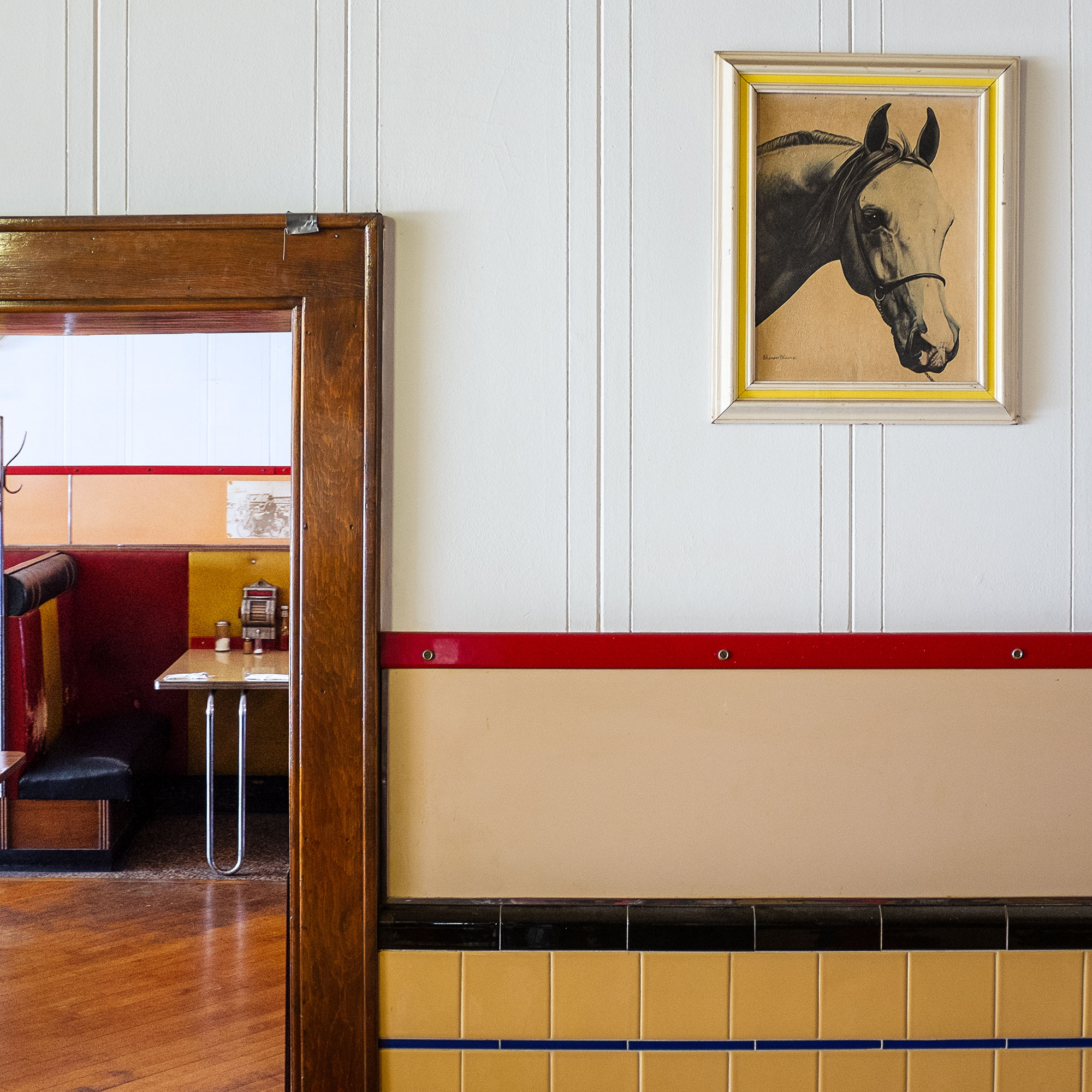
Leah Frances has always been drawn to the idealized version of America that emanated from her TV screen when she was growing up in British Columbia. In popular culture, she found that many television shows and movies focused on an idealized version of mid-twentieth-century America. After moving to New York in the mid-2000s, she found additional evidence of America’s fascination with this moment in time, as new restaurants were being constructed in the style of midcentury spaces. Her camera became a tool through which she could search for, document, and reconstruct this past in order to better understand it.
Her photographs focus on the built environment in order to turn viewers’ attention to deeper truths about a mythologized idea of America. The historic diner is emblematic of the supposed golden age of small-town America. It evokes a simpler, more prosperous time. Diners—often factory-built—can feel familiar and dissimilar at once.
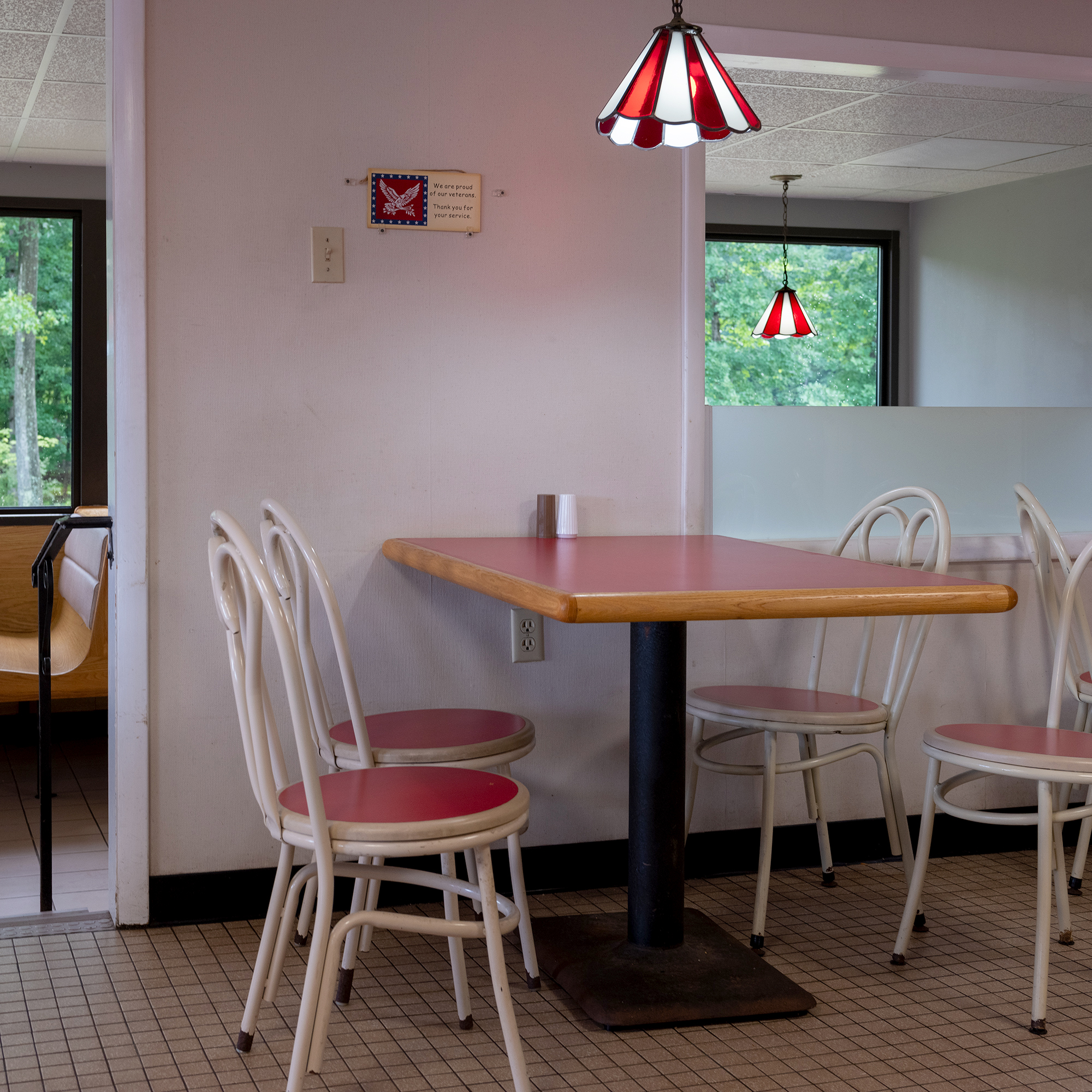
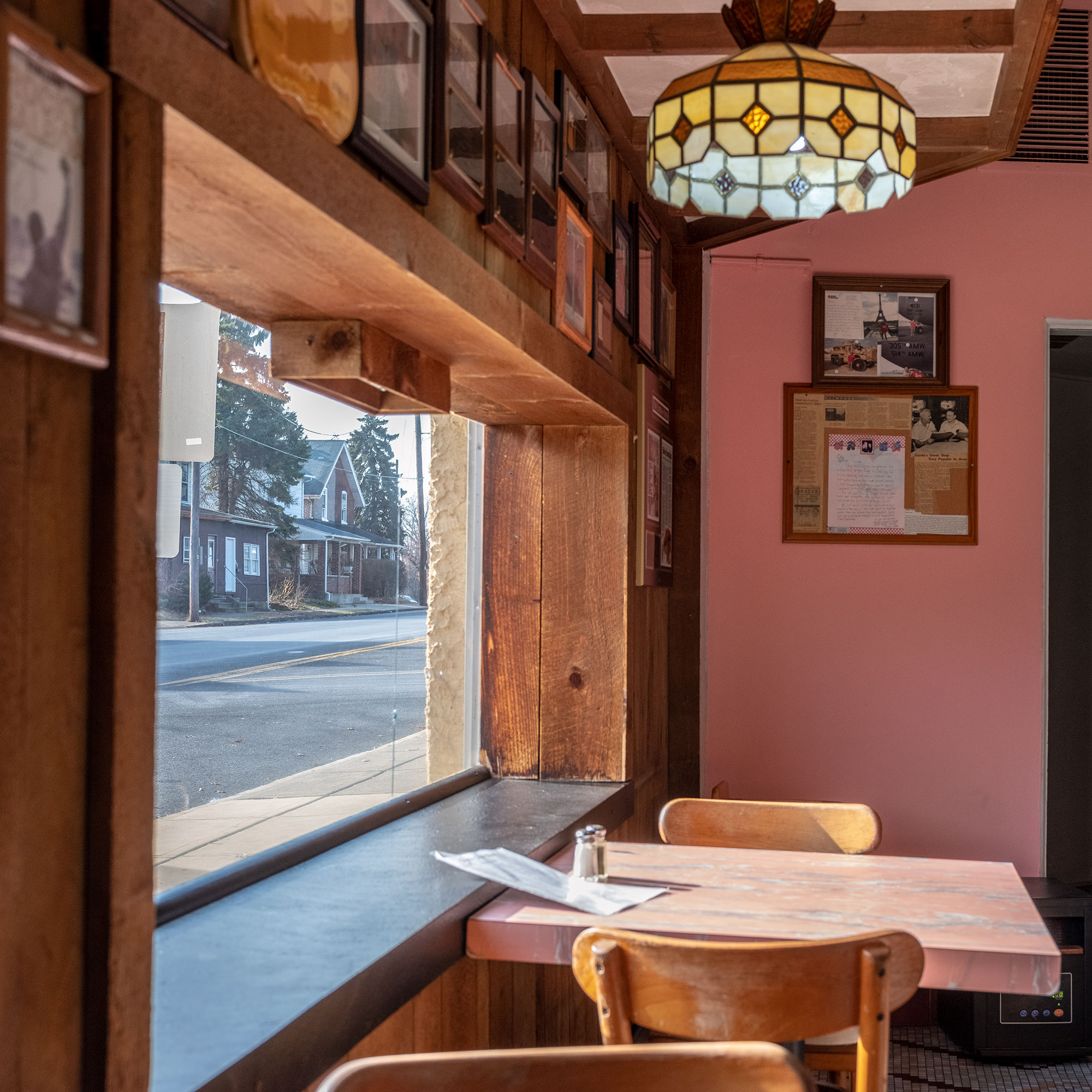
The American landscape is now populated with standardized, predictable spaces like diners; however, the diners in Frances’s photographs appear to be from another time. Flooded with golden light, they symbolize a romanticized and idealized past. For Frances, they are portals into this past. She views them as alternate realities in which the past doesn’t disappear—it remains. To paraphrase scholar Rebecca Schneider, what has happened in a particular place is always happening there.1 The past is continually taking place in the present. In these photographs, and at this moment, whether or not that memory is realistic remains to be seen.
In his essay for the catalogue for Life on Mars, the 2008 Carnegie International, curator Douglas Fogle writes, “Are we, ourselves, the strangers in our own worlds?” Humans are palpably absent in Frances’s photographs, yet traces of humanity are conspicuous throughout. Remnants of meals can be found on the tables. Chairs remain pushed away from tables by their former occupants. The photographs could almost be read as postapocalyptic portraits of humanity.
This juxtaposition of the old with the now draws the viewer’s attention to a palpable dissonance. In these photographs, there is a sense of anticipation about what may have been or what will happen in the future. While the photographs are, in a way, windows to the past, they are grounded in our current moment by details such as a political sign.
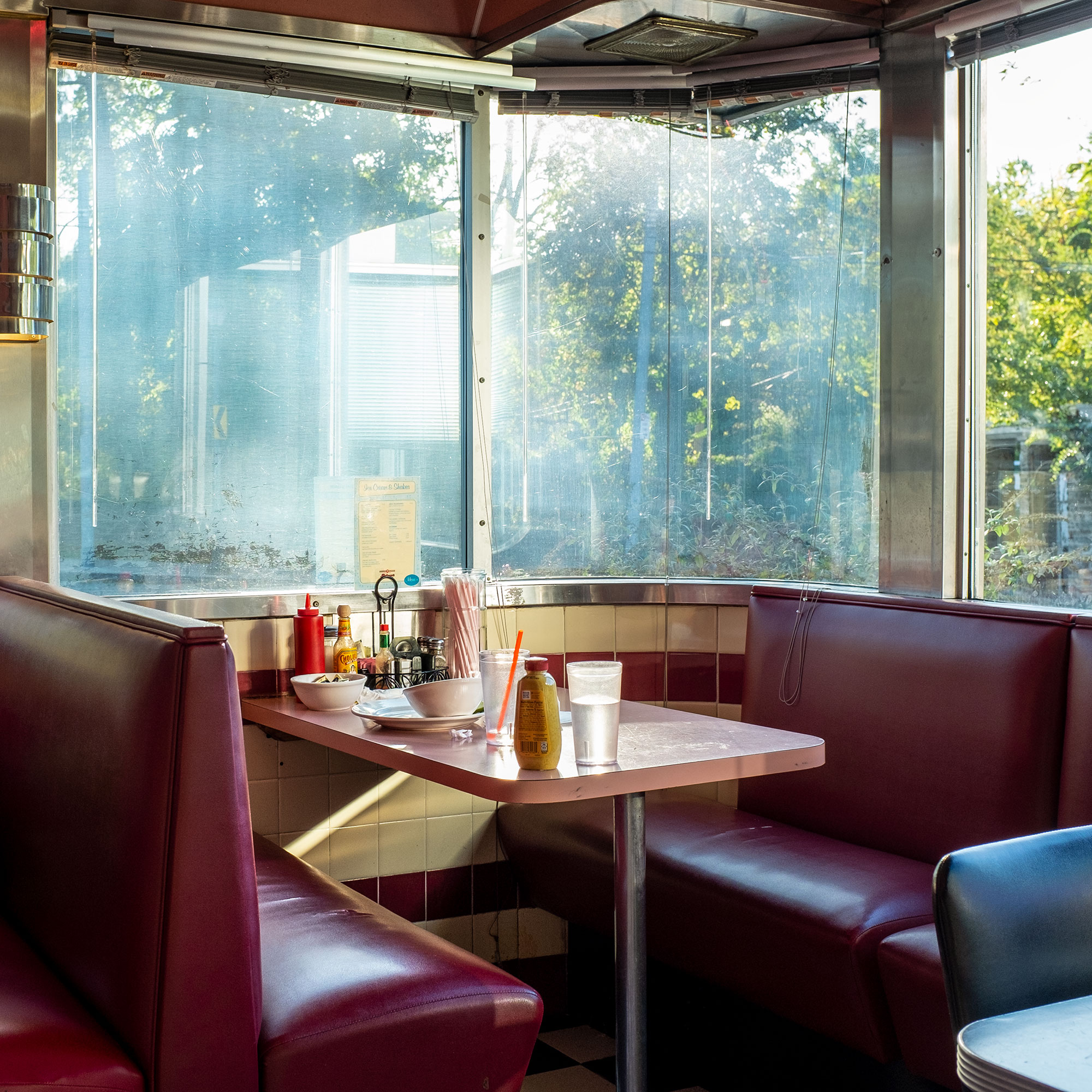
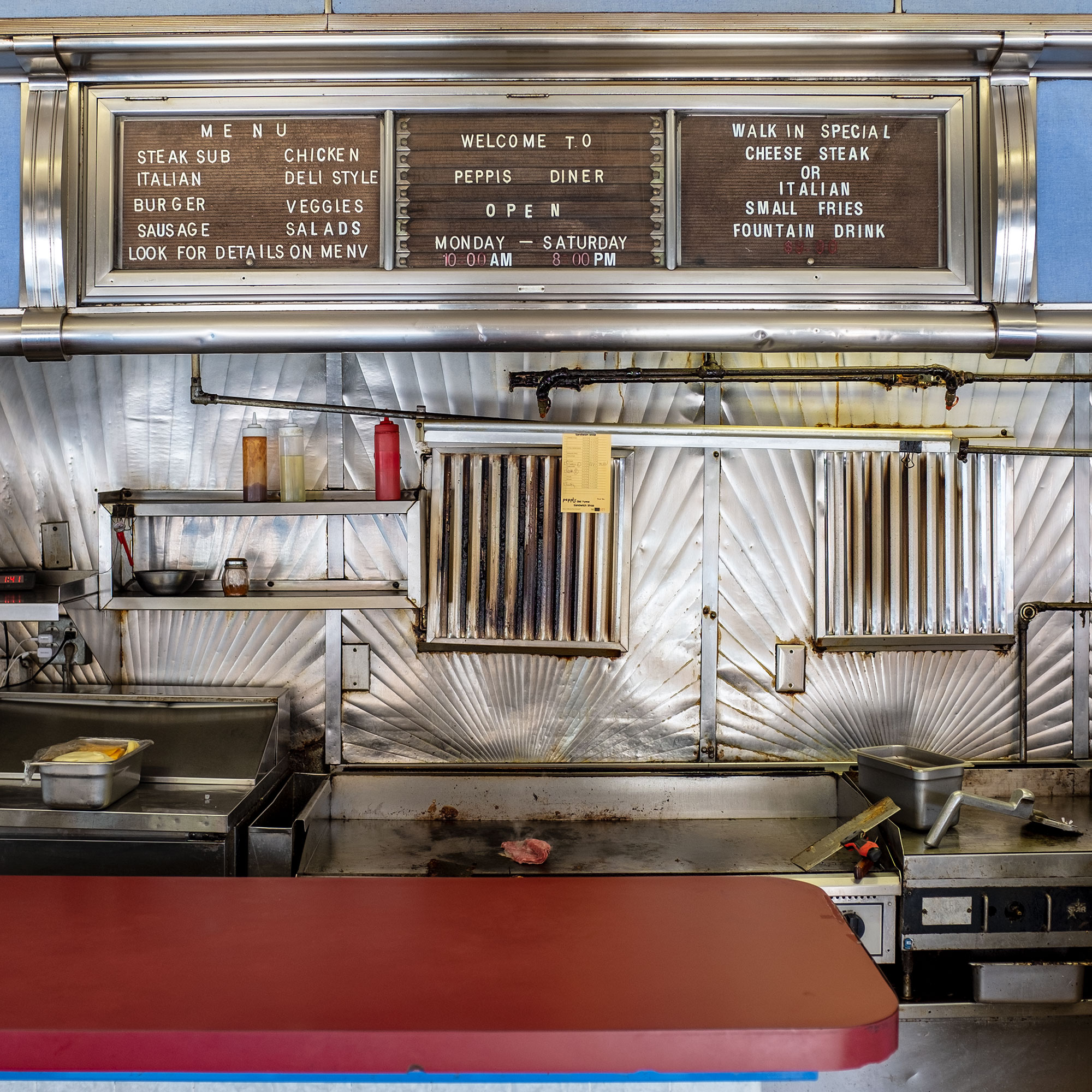
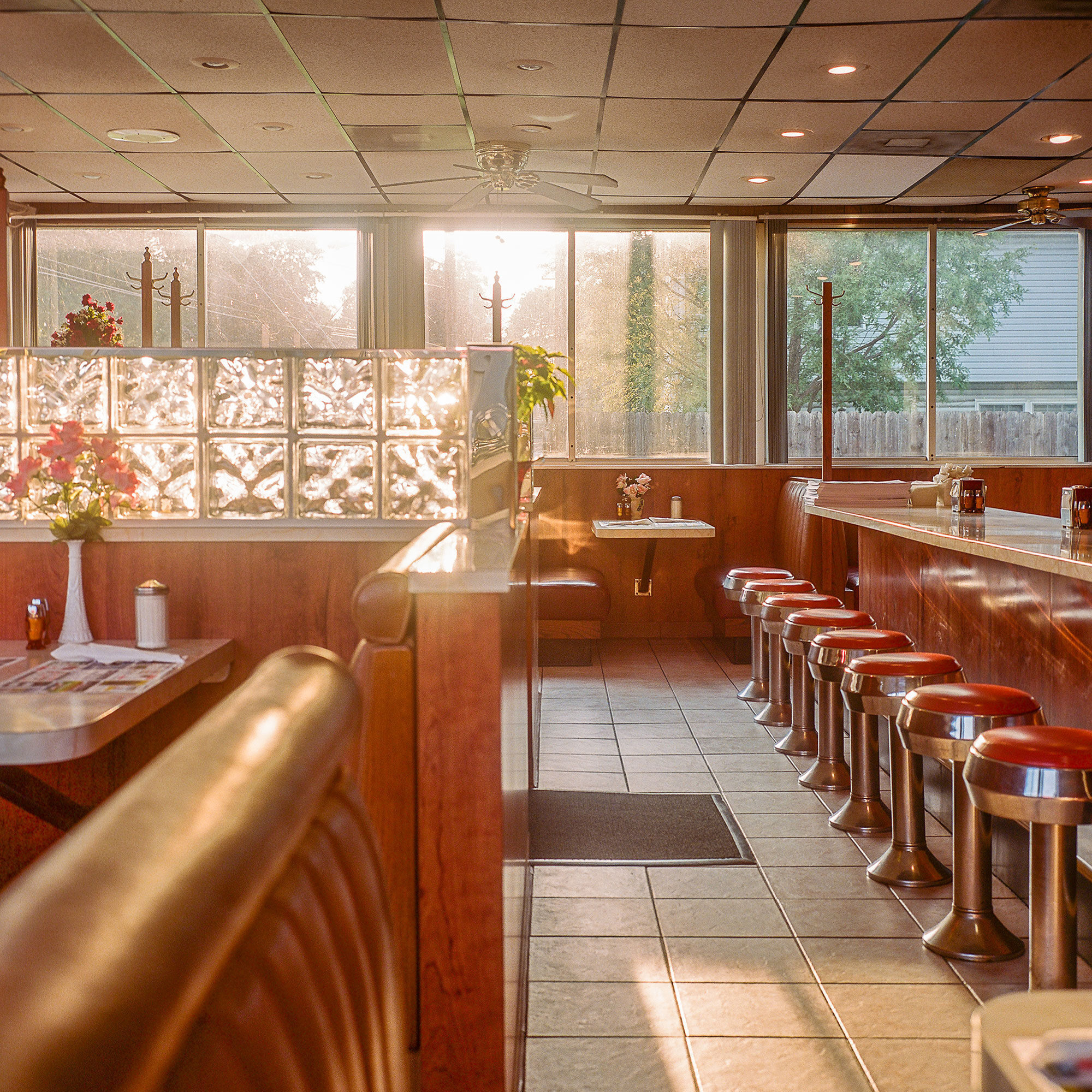
The third place—a space where people spend time that is separate from their home or place of work—and restaurants, in particular, have been devastated by the coronavirus pandemic. As restrictions fluctuate, businesses have taken precautions to keep their customers safe. In this uncertain moment, it is just as common to see a Lysol can on a countertop as it is to see a neglected car or building being overtaken by nature.
In the end, Frances’s photographs are hopeful. They reflect the staying power of the American mythology, and the strength of the American people to weather challenges. Frances asks the viewer to regard their surroundings more critically. Through this act, we can learn to recognize the ways in which our environment impacts or influences our collective mindset.
Small towns such as those in Frances’s photographs have been blighted by waning populations, socioeconomic fluctuations, and even the opioid crisis. Yet the diners still stand. They are, in a way, a symbol of our current moment, as well as a projection of our hopes for a return to “normal” in the future.
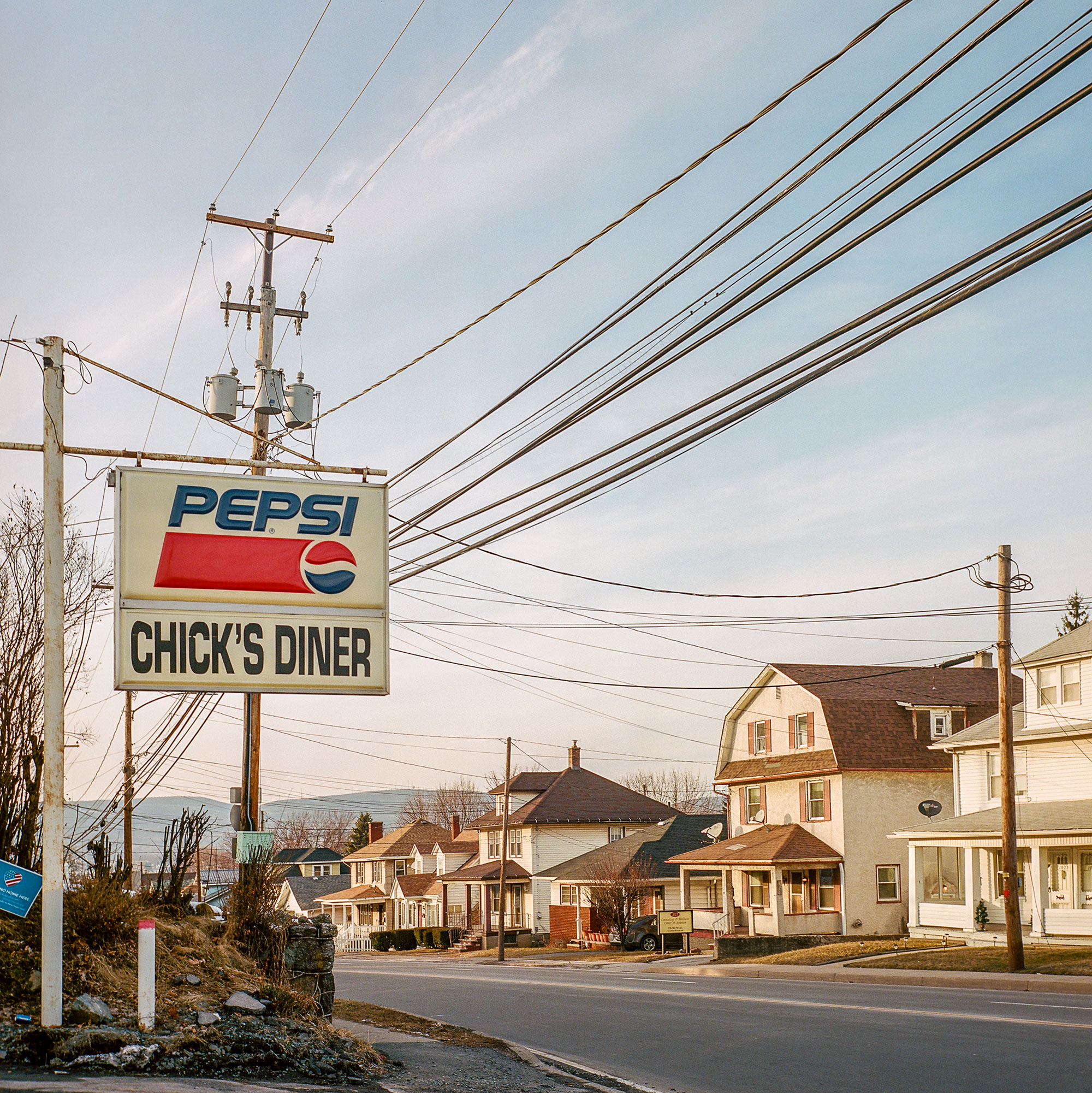
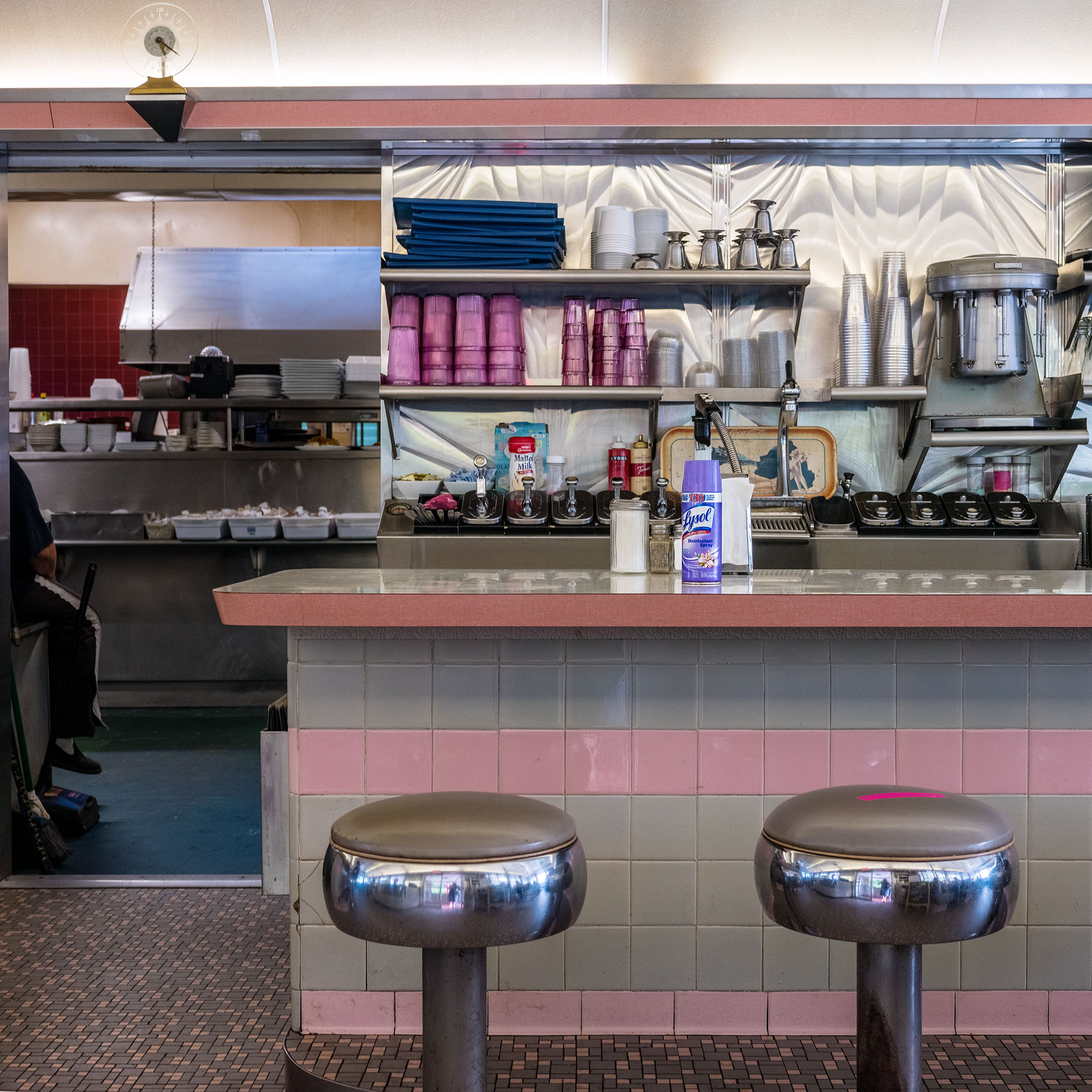
Ashley McNelis is a writer, curator, and art historian specializing in modern and contemporary art and photography. Currently, she is a doctoral student in art history at the University of California, Riverside. A former curatorial assistant at Carnegie Museum of Art, she worked on modern and contemporary art exhibitions, publications, and special projects from 2019 to 2021. From 2017 to 2019, she was the curatorial assistant for the Carnegie International, 57th Edition, 2018 exhibition. She holds a master’s degree in the History of Art, Theory, and Criticism from the Institute of Fine Arts, New York University.
Leah Frances is the eye behind American Squares, an Instagram photography project that documents American cultural relics and iconography. Frances’ work has been featured in numerous print and online platforms including The New York Times Magazine, The New York Times, T Magazine, the SFMOMA blog, Feature Shoot, Lenscratch and more and has been exhibited nationally and internationally. She is currently an MFA student in photography at The Tyler School of Art and Architecture at Temple University in Philadelphia.
Storyboard was the award-winning online journal and forum for critical thinking and provocative conversations at Carnegie Museum of Art. From 2014 to 2021, Storyboard published articles, photo essays, interviews, and more, that spoke to a local, national, and international arts readership.